When Ahmed Habhab was sentenced to four years in prison for trafficking in ecstasy, he was a self-professed “part-time Muslim.” He’d practise his faith now and then, but he wasn’t particularly religious. That changed in 2010, when he arrived at the Frontenac Institution in Kingston, Ont., at the age of 22.
Confronted with the solitude of his jail cell, Habhab began to think about God. “Being alone and having a lot of time to yourself gives you a lot of time to reflect,” he says. “There’s something about being in a three-by-five-foot cell … you start searching for answers, and you start looking for someone to talk to, and you come to the realization that there’s no one there but the Almighty.”
Habhab turned to Allah. He also turned to the prison’s chaplains. “Thankfully there were chaplains there, and I was able to get their support,” he says. The chaplains prayed with him, counselled him and provided him with materials such as books and prayer beads. They also gave him a connection to the outside world. “When you’re institutionalized,” he says, “your whole life revolves around the prison system. At least the chaplains give you updates on what different mosques are doing.”
For Habhab, prison was a turning point. In 2011, he was released on parole, having served half his sentence. Eight years later, he’s a general manager at a home improvement company, and he recently became a father. He continues to practise the committed faith he discovered in prison, and he credits much of his rehabilitation to his relationships with two prison chaplains he met behind bars.
Habhab’s experience will likely sound familiar to many inmates in Canada’s prison system. Even for those who arrive in jail without faith, religion often becomes an indispensable way of making sense of life in custody, and it can form an essential part of the rehabilitation and reintegration process. While not every prisoner will be drawn to religion, those who are have a fundamental right — upheld by the United Nations — to access guidance and resources in their own tradition.
Officially, the Correctional Service of Canada (CSC) says it is “committed to respecting [its] legislative obligations to provide interfaith chaplaincy services to offenders.” Yet, the majority of full-time prison chaplains working within the federal system are Christian. CSC says that’s because there aren’t enough non-Christian prisoners in any one institution to warrant a permanent full-time chaplain for them, but the current arrangement means non-Christian chaplains, often part-timers, end up hopscotching from prison to prison, visiting inmates once a week or less. (CSC did not provide Broadview with the exact number of Christian and non-Christian chaplains working in the system.)
Muslim faith leaders have been particularly vocal about the challenges their chaplains face — challenges that will only intensify as Canada’s prison population diversifies. According to statistics compiled by CSC, which manages 43 institutions and more than 14,000 prisoners, the Muslim population in federal custody increased by 18 percent between 2012 and 2016, rising to six percent of the total inmate population. During that same period, the proportion of inmates who identify as Christian decreased from 50.8 percent to 44.4 percent.
The CSC is in the midst of re-evaluating how it delivers spiritual and religious programming across the federal system. Since 2014, a single contractor has been responsible for managing chaplaincy in Canada’s federal prisons. For the past three years, that contract has belonged to Bridges of Canada, a non-profit organization with ties to a Florida-based evangelical prison ministry group. During that time, there has been a flurry of complaints from chaplains, calling for more support, more resources and stronger connections to Canadian faith communities in order to properly serve the spiritual needs of prisoners — particularly non-Christian ones.
The CSC has yet to release any details of its plan to fix the troubled system. In the meantime, minority-faith chaplains say they struggle to spend enough time with the inmates in their care. “For how long will minority chaplains be seen as second-class citizens?” asks one Muslim chaplain. “We should have the same recognition as Christian chaplains. Same time, same resources.”
“The research has told us time and again that having something to lose is essential to the desistance of crime, and that in most cases, the most effective ‘something to lose’ is a relationship.”
former prison chaplain Kate Johnson
Prisoners serving a federal sentence in Canada (that is, at least two years) come into contact with a host of professionals — psychiatrists and psychologists, counsellors and parole officers — intended to help them rehabilitate. They also encounter administrators, security guards and other personnel who support a prison’s day-to-day operations. Chaplains occupy a unique place in this milieu, operating outside the system of authority and institutional programming that defines so much of a prisoner’s life.
“We’re not inmates, and we’re not administration. We’re not security guards, and we’re not police,” says Yasin Dwyer, one of the first Muslims to work as a prison chaplain in Canada. “We’re in this neutral, safe space within a very polarizing, violent environment. So inmates have a high degree of trust in chaplains.” Dwyer no longer works in the prison system. But he continues to visit inmates as a volunteer and advocates for the importance of chaplaincy, which he believes plays a crucial role in humanizing the prison environment.
Other religious leaders working in the correctional system also stress the unique capacity of prison chaplains to cultivate trusting relationships with inmates, sometimes even emphasizing this element of their work more than their role in religious ceremonies and worship services.
“The research has told us time and again that having something to lose is essential to the desistance of crime, and that in most cases, the most effective ‘something to lose’ is a relationship,” said former prison chaplain Kate Johnson at a talk she gave in 2015 as part of the Compassionate Justice speaker series hosted by Toronto’s Eglinton St. George’s United Church. Prisoners who are visited regularly are more likely to reintegrate successfully upon release, she said, adding that often, “when a prisoner is isolated, it’s the chaplain, and the volunteers who come in through the chaplain, who reduce that isolation.”
While it may seem that much of a chaplain’s job — maintaining a positive presence within the institution, building relationships with inmates — could be done by other, secular professionals, chaplains say that because of the way prison life is structured, they are in the best position to provide this kind of companionship.
“Psychologists within the prison setting are more used to write up reports” and evaluate an offender’s risk factor, says John Tonks, who has worked as a prison chaplain in the Maritimes for 30-plus years. “So a lot of their time is taken up with assessments.” Another current chaplain, who wished to remain anonymous, says that because they aren’t required to record and assess their conversations, chaplains can have more honest and open dialogue with inmates.
That can make a huge difference for prisoners. Paul Oakley is currently serving an eight-and-a-half-year sentence at the Springhill Institution in northwestern Nova Scotia and says his visits with Tonks — whom he calls his spiritual adviser — are an opportunity to “bare my soul.”
“I get to be honest about my feelings and emotions, and I get to share where I’m coming from — you know, my trials and tribulations,” says Oakley, who has struggled with addiction. Now, with support from Tonks, Oakley says, “I’m learning how to actually feel and sit with my emotions,” instead of using drugs to hide from them.
When chaplains are present as compassionate listeners and counsellors, the connections they establish with inmates can be transformative. But in the case of non-Christian inmates like Habhab, those connections are most powerful if they’re made with someone who shares a cultural and religious background. “People open up more and are more trusting when they’re talking to someone they feel they can relate with,” says Habhab. “So if they’re Muslim and have a Muslim chaplain, it’s easier to open up. If they went to a [non-Christian] psychologist or a psychiatrist, I don’t think it would have the same effect.”
But chaplains can only lend their support to inmates if they’re available. And while every federal institution has at least one full-time chaplain who is expected to be competent to deliver guidance in multiple faiths, those chaplains more often than not come from the Christian tradition. That leaves non-Christian inmates waiting for the occasional visits they receive from chaplains representing the faith they adhere to. Habhab recalls getting weekly visits from his Muslim chaplain, though he also says even that wasn’t entirely consistent. “We would have a big lapse in times where nobody would even come and visit,” he recalls of his time behind bars. “That was disappointing, because you always look forward to when they would come.”
Yasin Dwyer says there have been “growing pains” in the development of non-Christian chaplaincy in Canadian prisons. “When we say the word ‘chaplain,’” he says, “the first image that comes to mind is usually either a Protestant or Catholic chaplain, because historically, in this part of the world, it was the Catholic and Protestant churches that were the pioneers of chaplaincy services.”
Indeed, the Christian church has deep roots in Canada’s prisons, and the present challenge, as Dwyer sees it, is not to rip up those roots, but to extend them, making prison chaplaincy more inclusive of non-Christian faiths.
Also on Broadview: Moms raising their babies in Canadian prisons
In May 1873, more than 100 prisoners in Kingston, Ont., stepped onto the Watertown, a steamship bound for Quebec. Accompanying them, along with the expected assortment of guards, was Father John Leclerc, a Catholic chaplain from Quebec who travelled to Kingston to accompany the inmates to their new home. He would later write that he felt his presence on the journey was encouraging to the prisoners. It was also indicative of just how integral the Christian religion has been to Canada’s penal system for much of its history.
The men Leclerc joined on the Watertown were being transferred from the Kingston Penitentiary, the first modern prison in Upper Canada. Opened in 1835, Kingston Pen would eventually come to be known for its inhumane conditions; it was shut down in 2013. But it originally represented a new and relatively progressive approach to criminal justice that had been championed by Christian reformers. Rather than simply punishing offenders, these reformers envisioned prisons as rehabilitative spaces (a vision that has not always been fully realized). And for better or for worse, the work of rehabilitation often fell to the church.
“[I]t is useless to strive to reform criminals without the influence of religion,” wrote Leclerc in an 1877 report.
As the Canadian prison system evolved in the 20th century, it honoured Leclerc’s sentiment, hiring Christian chaplains — generally one Catholic and one Protestant per institution — into positions of authority so they could deliver on the rehabilitative aspirations of modern corrections. “Chaplaincy in Canada has been a central part of the prison from its very beginning,” says Tonks, who served as the Protestant chaplain at Springhill in the 1980s and ’90s. “In fact, in some cases the chaplain was almost the second-in-command in the prison.”
But starting in the 1970s, the CSC began to back away from delivering chaplaincy services itself, choosing instead to contract outside faith groups to manage the services. Don Stoesz, a longtime prison chaplain and historian based in Alberta, says that a growing commitment to the separation of church and state reinforced the idea that independent faith groups should be responsible for chaplaincy, rather than the federal government.
What followed was a three-decade period in which faith groups across Canada received funding from the federal government to send chaplains and volunteers into the country’s prisons to minister to the spiritual needs of inmates. Non-Christian faith groups were included in this arrangement, though their contracts were often part-time and assigned to multiple institutions.
That model was abandoned by former prime minister Stephen Harper’s Conservative Party. When the Conservatives won a majority government in 2011, they did so with promises to get tough on crime. Budget cuts to the CSC followed. A year in, the Harper government cancelled the contracts of 49 part-time chaplains, many of them from minority faiths. That left CSC’s roster of full-time, mostly Christian chaplains to serve inmates of all faiths. “This approach supports the freedom of religion of prisoners while ensuring that taxpayer dollars are used wisely and appropriately,” a spokesperson for the minister of public safety told the Globe and Mail at the time.
Cancelling these contracts proved extremely controversial, however, and federal government officials were forced to find some other way of providing spiritual care to non-Christian prisoners. In 2013, they decided to end the practice of contracting with faith communities altogether, choosing instead to offer one contract to a single company to administer chaplaincy — including minority-faith services — across the entire system. (Indigenous spiritual services have not been affected by this change; CSC continues to contract directly with elders to provide spiritual services and counselling to Indigenous inmates.)
Kairos Pneuma Chaplaincy Inc., a Canadian company led by John Tonks and founded expressly to bid on the contract, initially won it and provided services to the CSC until 2016. But a new non-profit called Bridges of Canada came in with a lower bid. That organization was formed through an international expansion of Bridges of America, which has provided prison ministry in Florida for decades. Bridges still holds the contract, which was worth $8.5 million in 2018. (Bridges of Canada did not respond to Broadview’s requests for comment.)
Monty Lewis, a longtime prison minister and ex-convict in New Brunswick, was an early director of Bridges of Canada. His life of crime included drug dealing and assault, according to his biography. After finding God in jail, he dedicated himself to prison ministry. “While lying naked, broken and hopeless in a solitary confinement cell,” the Bridges of Canada website reads, “Monty prayed a prayer of desperation. To his absolute amazement, God answered that prayer and touched him with His supernatural power.”
Bridges of Canada’s headquarters are in Fredericton, but according to the organization’s website, about half of its directors are based in Florida, where they are variously involved with the Charismatic Episcopal Church. When Kairos lost the chaplaincy contract, Tonks voiced concerns about what he described as Bridges of America’s conservative evangelical leanings. (In the United States, evangelicals dominate the field of prison chaplaincy.)
Regardless of who won the contract, chaplains decried the shift to a sole provider on principle. In fact, Yasin Dwyer quit working as a chaplain in Ontario prisons in 2013 to protest the change, saying it would decrease the quality of pastoral care for inmates and, in turn, have a negative effect on public safety.
Today, many other chaplains continue be uneasy about the sole-provider model. While they acknowledge that the change has eliminated the salary discrepancies that used to exist between chaplains of different faiths and different denominations, they worry that the new model severs ties between chaplains, prisoners and community faith groups. One of the biggest strengths of the old multi-provider approach, they say, was that it encouraged these kinds of relationships with communities outside of prison.
“Connecting inmates with a religious community on the outside is very, very important,” says Dwyer. He said the move to a sole contractor “severed ties with authentic, authoritative, credible religious service from the Muslim community, because it was being defined by this private company that didn’t necessarily have the connections with the community.”
The CSC, for its part, says it will continue to review the model as it develops a new plan for chaplaincy. A CSC spokesperson also notes that community engagement continues to be part of the contractor’s statement of work and that “all chaplains network with many faith groups to support offender faith practice.”
Despite the many misgivings about the administrative structure they work under, prison chaplains in Canada continue in their enthusiasm to support offender rehabilitation. Brian Hawes is president of the Interfaith Committee on Chaplaincy, which advises CSC on behalf of Canada’s faith groups. He says that while the committee disagreed with the decision to end contracts with multiple Canadian faith groups, chaplains have adapted to the new system and are doing “amazing work” in Canadian jails.

The road running into the western Alberta hamlet of Grande Cache weaves through a rugged, mountainous and largely unpopulated landscape before it reaches the driveway of the Grande Cache Institution, a medium-security federal prison with hundreds of inmates. The nearest urban centre is over 100 kilometres away. The nearest major city, Edmonton, is more than 400 kilometres away. That means that for any Buddhist, Muslim and other non-Christian inmates at Grande Cache, incarceration means being isolated from the faith communities that might be able to provide chaplains and volunteers to minister to them.
In lieu of actual face-to-face services, inmates are often connected with spiritual advisors via video conference or telephone. But even Hawes admits he’s not sure whether these measures are adequate for the prisoners. “That’s really a subjective question,” he says. “All I can say is we’re doing our very best.”
The case of Mohammed Karim and Nicolas Hovanesian, two Muslim inmates who were incarcerated at Grande Cache in 2015, would suggest those efforts are falling short. With no regular access to an imam, Karim (who’s serving a life sentence for murder) began leading Friday prayers himself and was labelled a troublemaker by the prison’s Christian chaplain, according to an interview Karim gave to the CBC at the time.
He and Hovanesian, who was sentenced to 14 years for kidnapping, say they were kicked out of the chapel while praying, given dirty blankets instead of prayer mats and taunted by the chaplain. The two men filed a complaint with the Canadian Human Rights Commission — just one of dozens of complaints that year concerning religious accommodation in prison.
Grande Cache is far from being Canada’s only remote prison, and chaplains have identified this as a significant challenge in ensuring minority-faith inmates receive equitable spiritual care. “You won’t have a mosque or an imam or a Muslim population … out in the places where the prisons are located,” says a Muslim chaplain who works at multiple prisons. “So, the [prison] staff would be primarily Canadians who do not have any kind of diversity background. But the prison population is increasing with diversity, so you can imagine how many people demand your time.”
The chaplain, who didn’t want to be identified, says he doesn’t have enough time to keep up with requests for his services and that the time crunch has gotten worse under the sole-contractor model. Now, he says, he is required to do more paperwork than before, which eats into the time he spends with inmates. (CSC, meanwhile, says the sole-contractor model is “able to provide more service hours, more equitably distributed” than the old one.)
Minority-faith ministries also face material shortcomings. The Muslim chaplain says the local community has to raise money to buy basic items like Qur’ans and prayer mats for prisoners. He also notes that institutional chapels still feel Christian; he has to cover up the cross and remove the pews before he leads prayers. Another example: most chapels don’t include ablution units, which means inmates must resort to lifting their feet into the bathroom sinks to perform the ritual cleaning required before prayers.
Despite the challenges, he adds, “you don’t want to give up because of finances and resources. So you keep plodding along, hoping that the stories that inspire you every day will add to the garden of your own life.”
Minority-faith ministries also face material shortcomings. The Muslim chaplain says the local community has to raise money to buy basic items like Qur’ans and prayer mats for prisoners.
Richard Arsenault can attest to the wonders of chaplaincy delivered right. In fall 2016, he landed in a provincial jail in Prince Edward Island on charges related to a string of home robberies in and around Charlottetown. Like Habhab, he wasn’t particularly religious. But during his trial, he started reading the Bible and attending church services, and then embraced Christianity.
After pleading guilty and receiving a nine-year sentence, Arsenault was transferred to the Springhill Institution in northwestern Nova Scotia, where he remains today. Springhill has a full-time chaplain who is Roman Catholic, along with a part-timer who is also Catholic. A Mennonite pastor visits regularly, and a nearby United Church congregation sends cards and organizes a party at Christmas. “They care about you,” says Arsenault of the chaplaincy team. “And when you need to talk to them, they’re there.”
On the edge of the Springhill grounds, overlooking a field and forest, is the St. Luke’s Renewal Centre, a retreat space for inmates unlike anything else in the Canadian correctional system. While St. Luke’s is open to inmates of all faiths, it’s funded and managed by the non-profit Concilio Prison Ministry, a primarily Christian group.
The centre runs guided meditations, Bible studies, counselling sessions and more for inmates looking to get away from the prison environment. Inmates can also apply to spend unstructured time at the centre, which is housed in a bungalow with large windows that face away from the prison, and can even stay overnight.
With all these resources, Arsenault has found a new life in prison. He works part-time at both the prison chapel and St. Luke’s, and he’s studying for his high school equivalency — something he says he didn’t have the energy for until he found God. Perhaps most importantly, he says he no longer carries around “that little ball of anger” he used to harbour inside himself. “God has opened so many doors for me in here,” says Arsenault, who is facing six more years in prison. “He just has a way of keeping me always learning, always growing, always finding opportunities.”
Yasin Dwyer would like to see all inmates have access to the same transformative experience as Arsenault. He believes that part of the problem is the public simply doesn’t understand how vital chaplains are to prison life. If they did, he says, “we wouldn’t be as susceptible or vulnerable to governments using chaplains as some sort of football to throw back and forth in the name of saving money.” Chaplains, Dwyer adds, “are best suited to be on the front lines of rehabilitation for inmates. We just have to find ways to show the public how and why it works.
This story first appeared in the May 2019 issue of Broadview.
For more of Broadview’s award-winning content, subscribe to the magazine today.

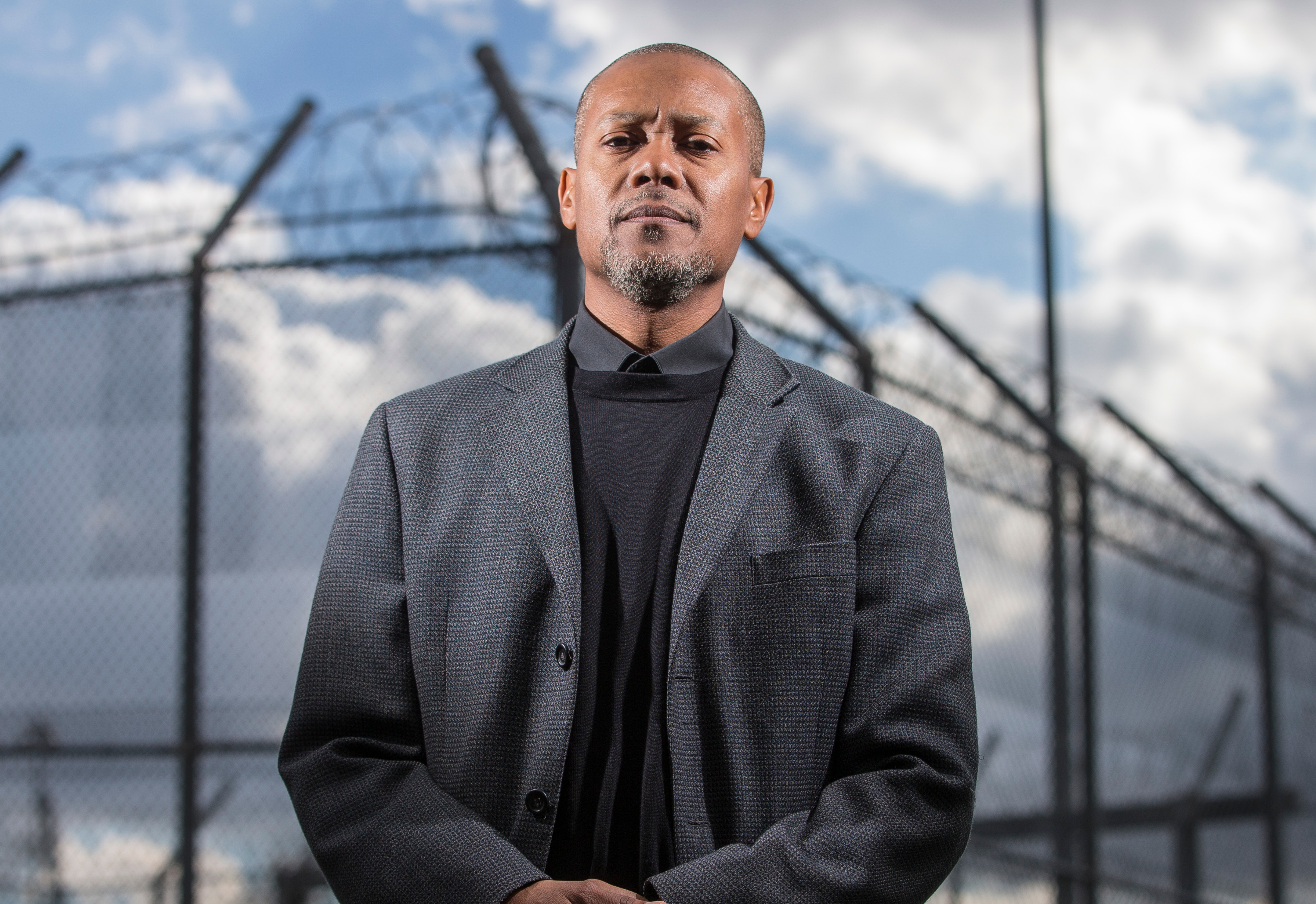








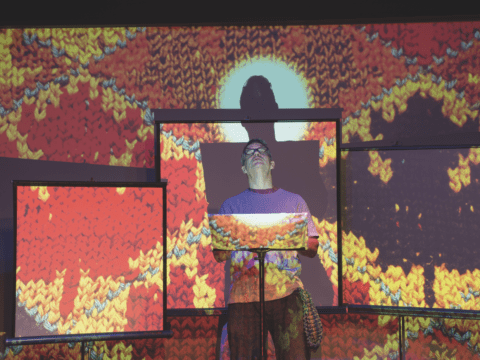
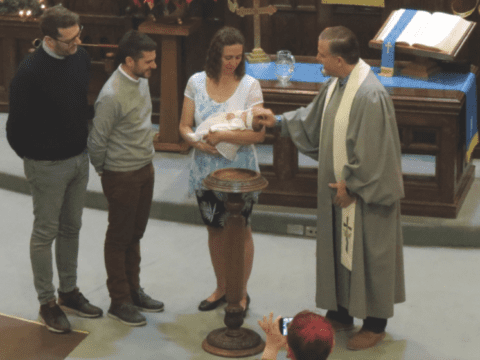
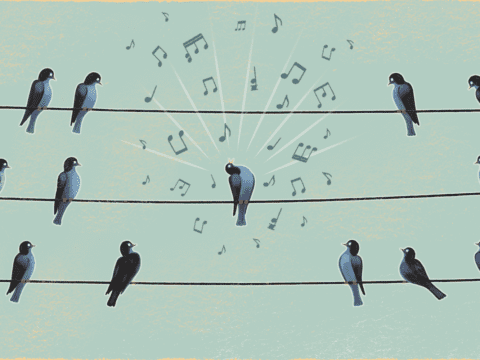

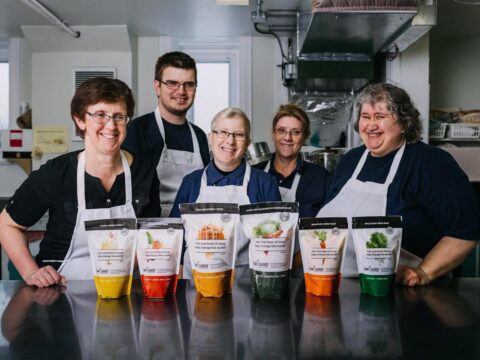

Another issue which has arisen from trying to form a multi-cultural country (society).
Classic example of what happens when our society deviates from Scriptural commands.
Very relevant and provocative article on a topic most of us are in the dark about. Well done. Dennis Tupman, 100 Mile House, BC
If assorted faiths and denominations were more into “The Way” of their path to God rather than “religion” or “scriptural commands”, things might be different in and out of prisons.
Although it is sad to hear that prisoners from faiths without a local following lack of their preference for a spiritual leader and hence such items as receptacles for ablutions, again none of these would be needed if the basic “Way” of the religion were to be followed. In Christianity these boil down to the two great commandments: 1. Love God (theistic or non-theistic in definition as you prefer) 2. Love your neighbour. Jesus was not in the business of making a religion, nor was Mohammad. These people proposed a “Way” of living not a business or social club.
And isn’t it too bad that folks don’t think of things greater than themselves and “The Way” until they are in trouble? I think we are all guilty of this.
Excellent coverage. There is no question that multifaith chaplains need to be available, but if clergy are doing visiting in prison on top of the responsibility of a pastoral charge, it’s a hard burden yet something we are called to. I would hope that the powers who are making this decision to go with a single source for chaplains would recognize the importance of seeking the wisdom of someone in your own faith. We have one God, and the rule we need to follow is love, not divisive doctrine.